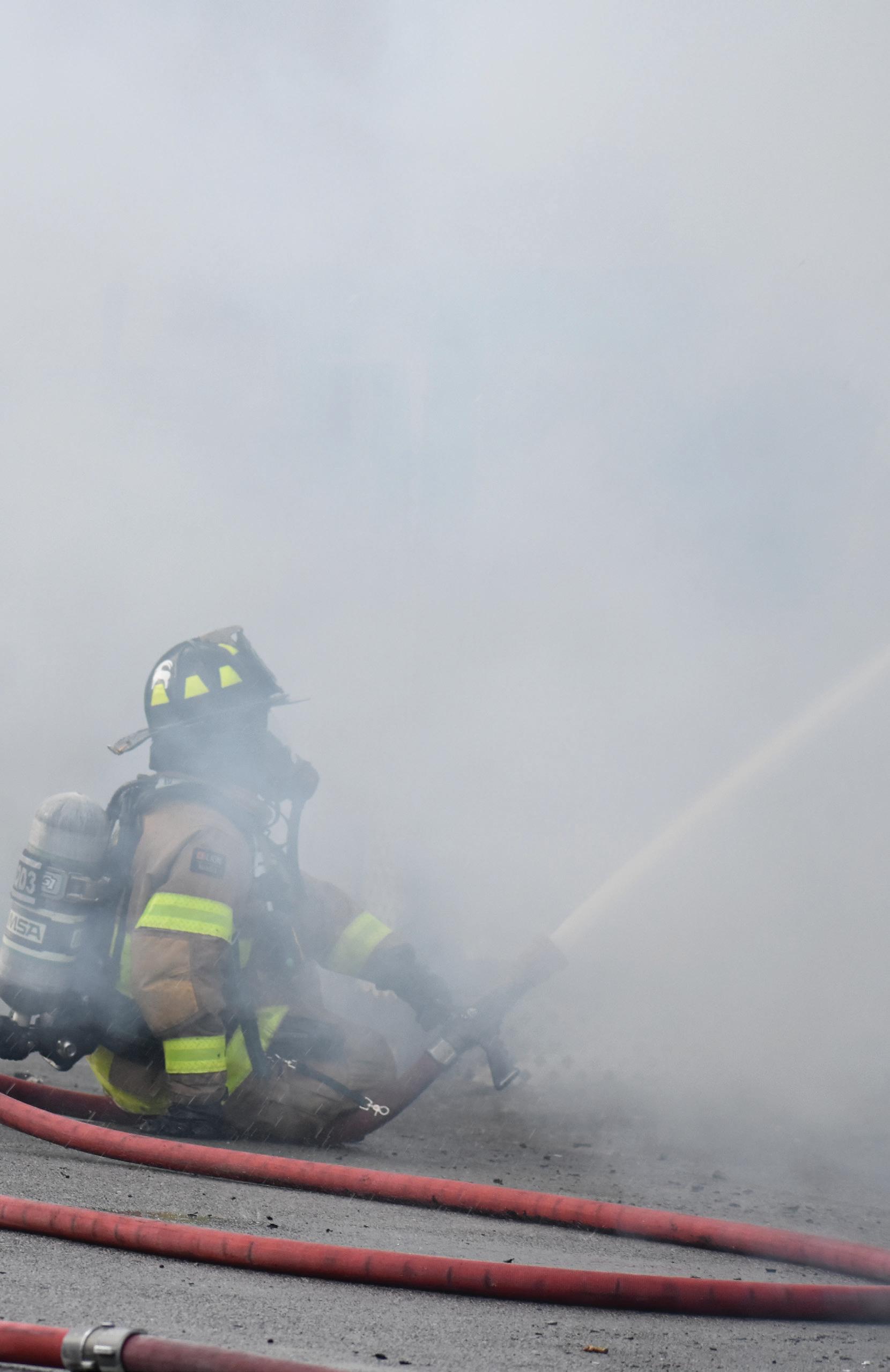

CRITICAL INCIDENT STRESS TIPS FOR FIRST RESPONDERS AND FAMILIES
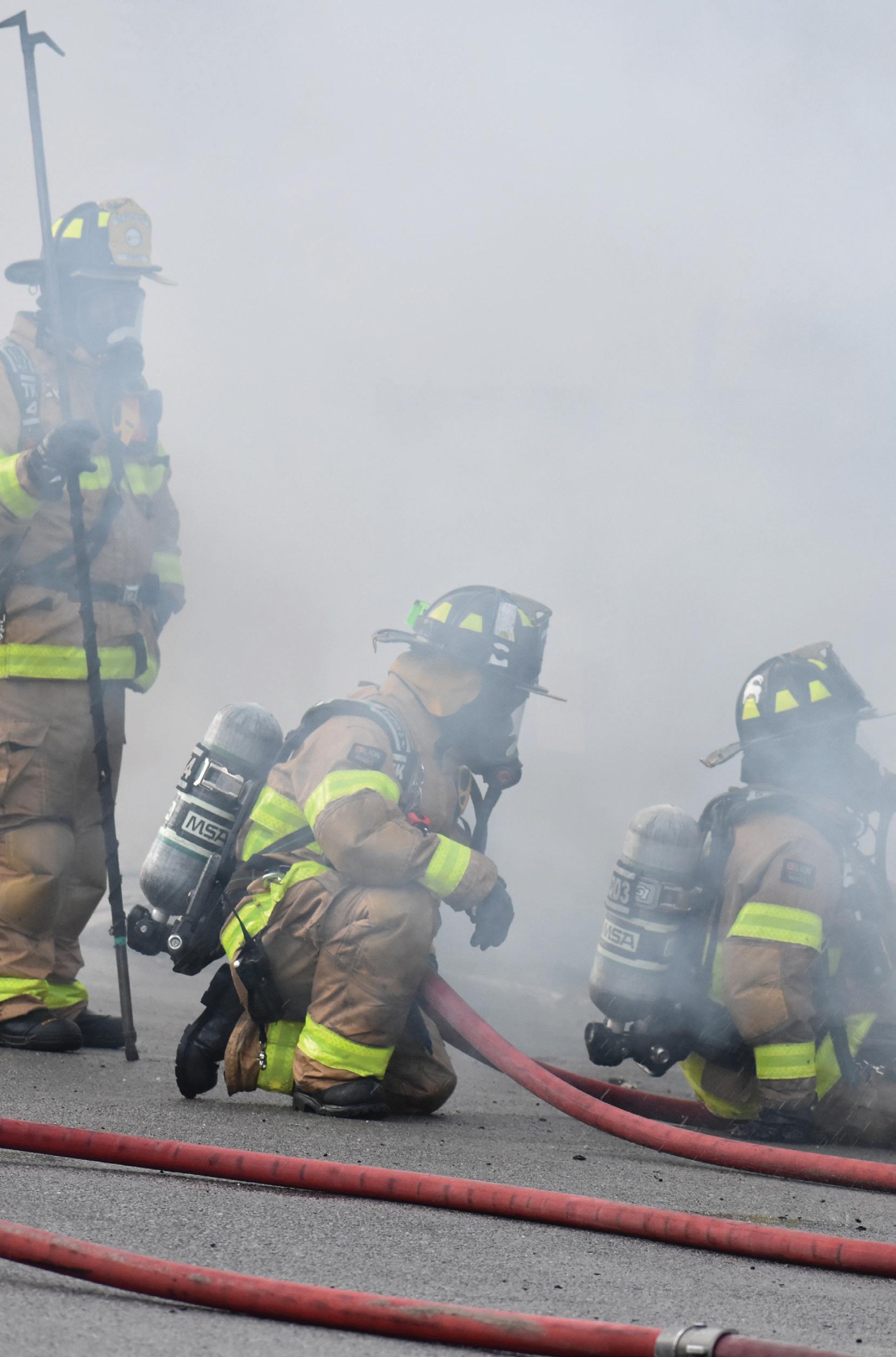
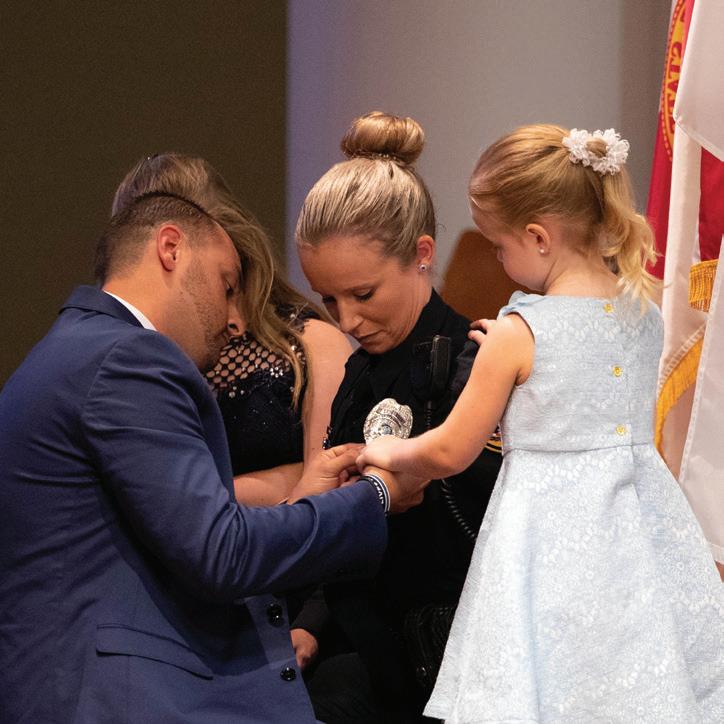
Photo
What
TRAUMATIC CALLS
Experiencing a critical incident may result in many different reactions, or no reactions at all. Initially, first responders might find it hard to stop thinking about what happened. Stress reactions—such as fear, anxiety, jumpiness, upsetting memories, and efforts to avoid reminders—will gradually decrease over time for most people.
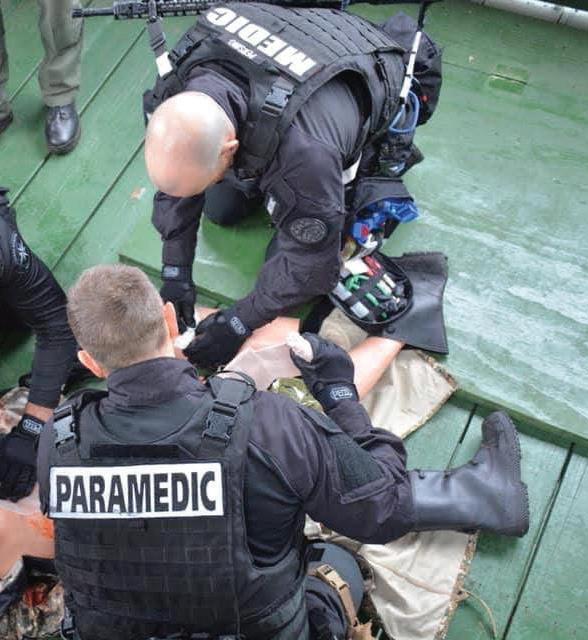
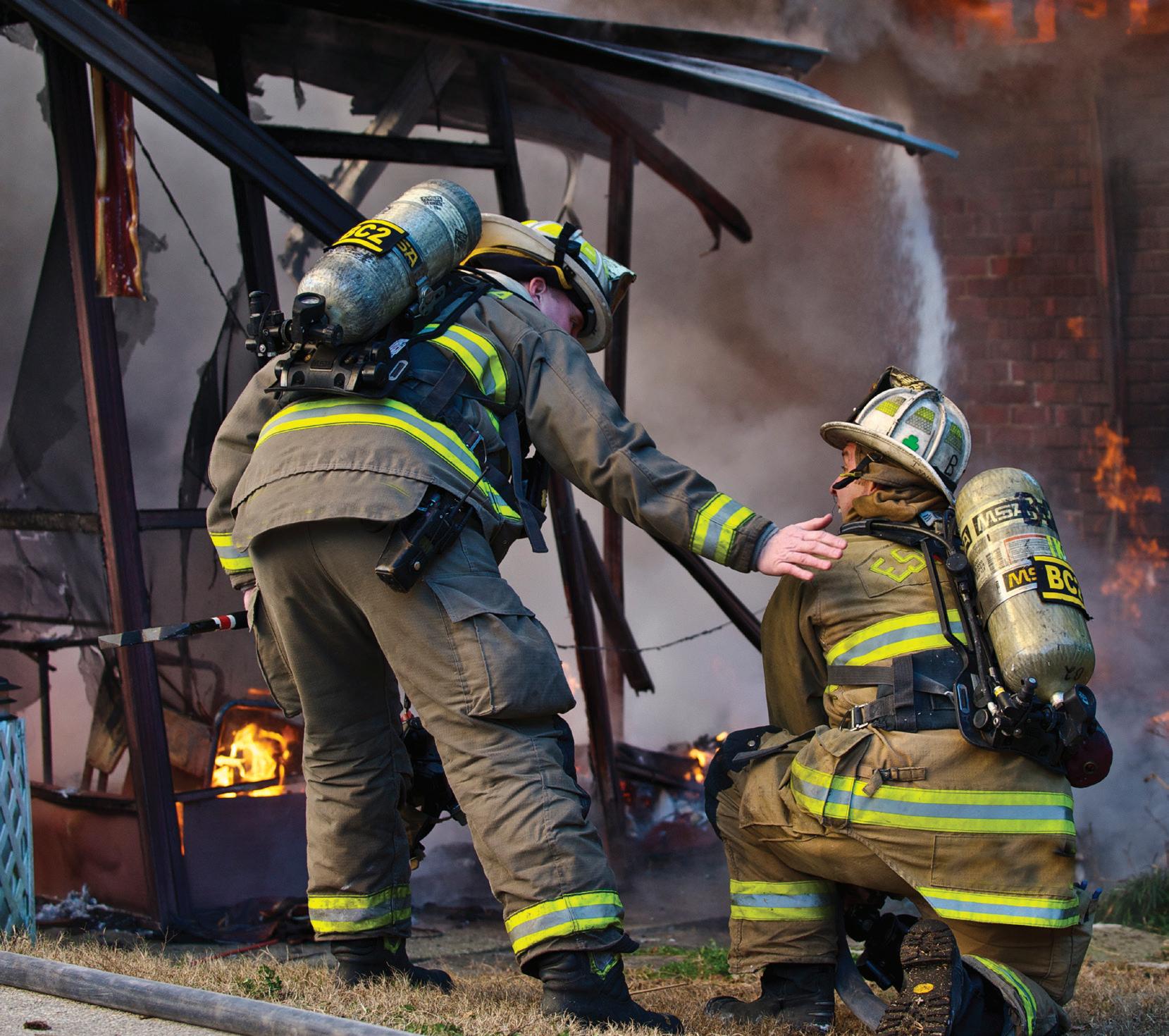
Happened?
UNDERSTANDING INTENSE FEELINGS
Understand that intense feelings following an incident could occur. It is important to know:
• Most reactions are normal and do not imply craziness or weakness.
• Sometimes reactions occur immediately- sometimes days, weeks, or months later.
• Reactions may last a few days, a few weeks, a few months, or occasionally longer.
• May be triggered at some later time by a reminder of the event (e.g., sights or smells, anniversary, locations, news reports about a similar event).
• May be triggered or made worse by unintentionally insensitive reactions of others (e.g., friends and family who ‘say the wrong thing’, media reports which may appear blaming and callous, etc.).
• Strange dreams or nightmares, feeling tense or having intrusive memories are common during or shortly after stressful work with human remains. Try not to feel guilty about distancing yourself mentally from the suffering or tragic deaths of individuals. Acknowledge the horrible aspects of this work.
• Getting back to normal may take several months, but if there is no decrease in symptoms after one or two months consider seeking professional help.
First Responders are extraordinarily resilient and able to bounce back after experiencing a critical incident. You may feel overwhelmed and distressed, but these responses are normally transitory and rarely suggest a serious mental disturbance. Experiencing a tragic event can uncover hidden strengths. Seeking help is a sign of strength.
Self-Care Tips for First Responders
CRITICAL INCIDENTS CAN DERAIL EVEN THE BEST SELF-CARE PLAN. BUDDY UP, EMPHASIZE PROPER HYDRATION AND NUTRITION, KNOW THAT SELF-CARE DURING TIMES OF
EXTREME STRESS MAY LOOK DIFFERENT THAN YOUR TYPICAL PLAN.
• Crews who encounter critical incidents together during a tragedy undergo a shared experience that can be hard for others to understand. This experience may reinforce and strengthen the tight bonds of the brotherhood/sisterhood in the department. Lean on each other as needed and available.
• Try to sleep when you can and even if you cannot eat a lot, eat well. Take care of your body so that your body can take care of you.
• Turn to the people you trust - friends, family, peers- and talk to them - but only if and when you want to talk.
• Seeing suffering and devastation of a critical incident can increase feelings of cynicism and hopelessness. Carefully monitor changes in your physical health.
• Many find it difficult to leave a situation where you responded and forget about it. Feeling a range of emotions is typical. It may take time to feel ‘normal’ again. If symptoms interfere over time with sleeping, eating, decision making, performance, this is no longer helpful or healthy.
• Humor is a good stress release. Even dark humor privately among friends may be helpful but keep in mind, this may be offensive to some.
SELF-CARE ACTIVITIES FOR SPECIFIC CONCERNS
FEELING KEYED UP OR ANXIOUS
• Try some deep breathing. Inhale slowly through your nose (count slowly to 5) and fill your lungs down to your stomach. Exhale slowly through your mouth (count slowly to 5). Do this 5 times and as often as you need.
• If you have a smartphone, download the free app “breathe2relax.”
FEELING OVERWHELMED
• Identify priorities and decide what to do first.
• Break the tasks into manageable steps.
• Identify people or agencies who can help and ask for help.
USING ALCOHOL/DRUGS TO SLEEP OR FEEL BETTER
• Alcohol will not help you sleep better; passing out is not restorative sleeping.
ENCOUNTERING REMINDERS OF THE EVENT
• Understand that people, places, sounds, smells, may trigger reminders of the event.
• Watching news coverage may trigger thoughts or emotions related to the event.
• Remind yourself that these reactions are normal and you are readjusting.
DIFFICULTY SLEEPING OFF DUTY
• Stick to a consistent bedtime.
• Do not drink caffeine, use nicotine, or consume alcohol at least 4 hours before going to bed.
• Follow a healthy diet and exercise to promote body repair and balance hormone levels.
• Digital Detox – set a time to put away electronics and turn off television.
• Educate yourself on sleep – Books, Podcast, Sleep Apps.
• Seek help from a professional sleep specialist if needed.
• Critical Incidents can take a lot out of you. Allow a few days to weeks to acclimate back to feeling like you are handling life well. Be mindful of your own boundaries. Practice gratitude.
• This experience may have impacted your family at home in significant ways as well. Provide support for their own self-care activities and be patient with each other.
THE REACTIONS LISTED BELOW IN THE RESPONDER STRESS CONTINUUM ARE ONLY OF CONCERN IF THEY ARE REPEATED, OCCUR OVER THE COURSE OF WEEKS, IMPAIR ABILITY TO FUNCTION, OR INCLUDE THOUGHTS OF SELF-HARM.
• Recurrent, unwanted distressing memories; upsetting dreams or nightmares
• Reliving the traumatic event as if it were happening again (flashbacks)
• Trying to avoid thinking or talking about the critical incident or avoiding places, activities or people that remind you of the event
READY REACTING
Sense of Mission
Spiritually and Emotionally Healthy
Physically Healthy
Emotionally Available
Healthy Sleep
Gratitude
Vitality
Room for Complexity
Sleep Loss
Change in Attitude
Criticism
Avoidance
Loss of Interest
Distance from Others
Short Fuse
Cutting Corners
Loss of Creativity
Loss of Motivation
Fatigue
of Concern
• Negative thoughts about yourself, others, or the world; hopelessness
• Feeling detached from family and friends; memory problems
• Increased irritability, hyper startle response; always being on guard for danger
• Self-destructive behavior such as drinking too much or driving too fast
• Irritability, angry outbursts, or aggressive behavior
• Overwhelming guilt or shame
• Thoughts of harming self or others
INJURED CRITICAL
Sleep Issues
Emotional Numbness
Burnout
Nightmares
Disengaged
Exhausted
Physical Symptoms
Feeling Trapped
Relationship
Suffering
Isolation
Insomnia
Hopelessness
Anxiety & Panic
Depression
Intrusive Thoughts
Feeling Lost or Out of Control
Blame
Isolating
Broken Relationships
Thoughts of Suicide
TIPS FOR FAMILY MEMBERS OF FIRST RESPONDERS
• You may have been concerned, worried, stressed, or even panicked about your family member’s involvement in the critical incident. Sadness, loneliness, feeling overwhelmed and frustrated are all very common and ‘normal’ reactions. You might also feel angry because you had to handle so much on your own while they were away. It may take awhile for you to feel like the everyday household ‘groove’ is there again.

Self Care
• Children’s reactions to a par ent’s involvement in a critical incident vary with each child. Reactions depend on age, maturity level, and any other behavioral or mental health problems the child might have. The mental health of the parents often affects the child’s distress level, so re member to take time to take care of yourself.
• Consider limiting media expo sure about the incident for yourself and your children.
• Follow the self-care tips above for yourself as well. Focus on rest, hydration, nutrition, enjoyable activities, socialization, and prioritizing tasks. Reach out to those you trust for support when needed. Practice gratitude.
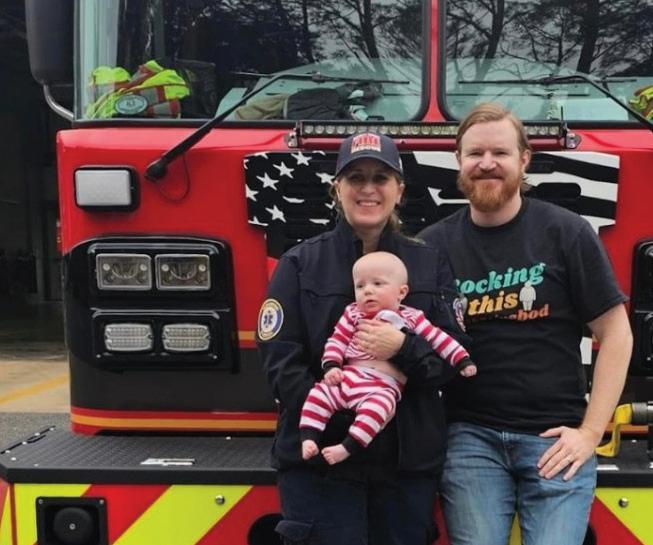
• If and when your family member wants to talk - listen supportively, do not probe for details or try to get them to ‘grieve’, or ‘process’, let the person say what they want to say – do not push for more, and remind them that returning to everyday life takes time – all feelings are normal and natural to the readjustment process.
• Offer practical support. Limit ‘honey-do list’ items for now. Try not to take on any new projects or make any big, important decisions. Prioritize household and family related tasks to minimize stress on both you and your Responder.
SADNESS, LONELINESS, FEELING OVERWHELMED AND FRUSTRATED ARE ALL VERY COMMON AND ‘NORMAL’ REACTIONS.
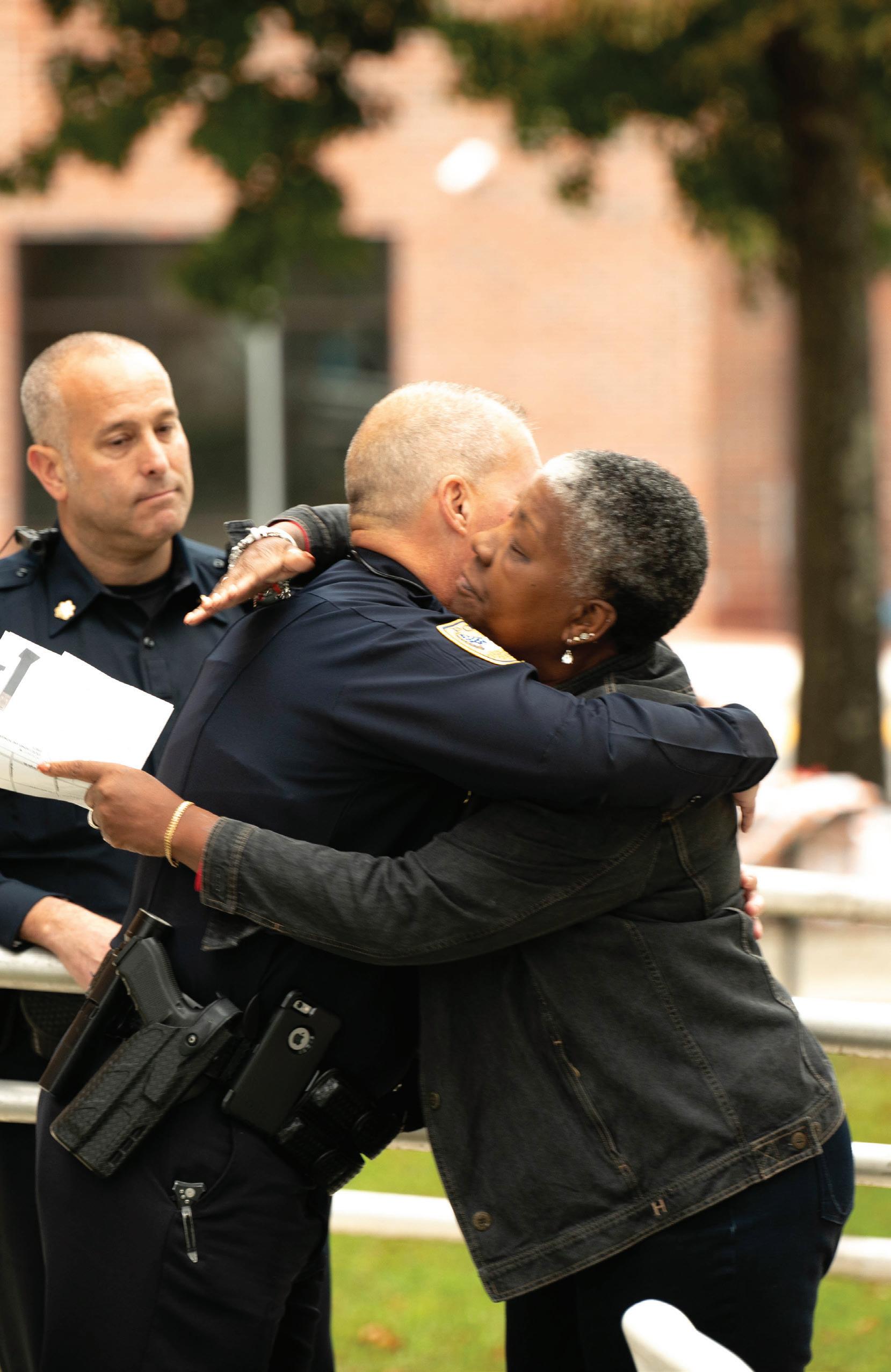

Self Care
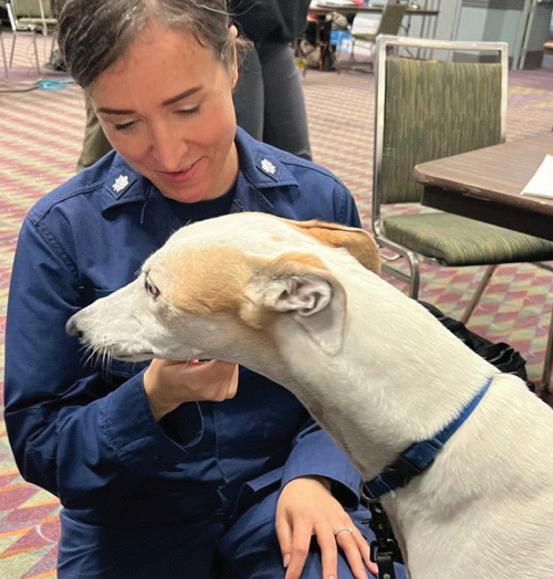

• Offer opportunities for socialization or relaxation- suggest engaging in an activity that is typically enjoyed—walking, fishing, movies, going for food, offer to join them at an event related to remembering the incident or a related social cause-participation in these groups may be very empowering.
• Your family member has likely experienced and reinforced tight bonds with the other first responders. Many first responders will rely on those they work with to cope due to the shared experiences that are often hard for others to understand. While difficult at times, know this shared connection between your family member and other first responders is not intended to make others feel ‘left out’ or disconnected from you.
• Returning home after a critical incident can be happy and stressful. Remember, readjustment following critical incidents takes time for everyone involved.
• Seek out resources.
